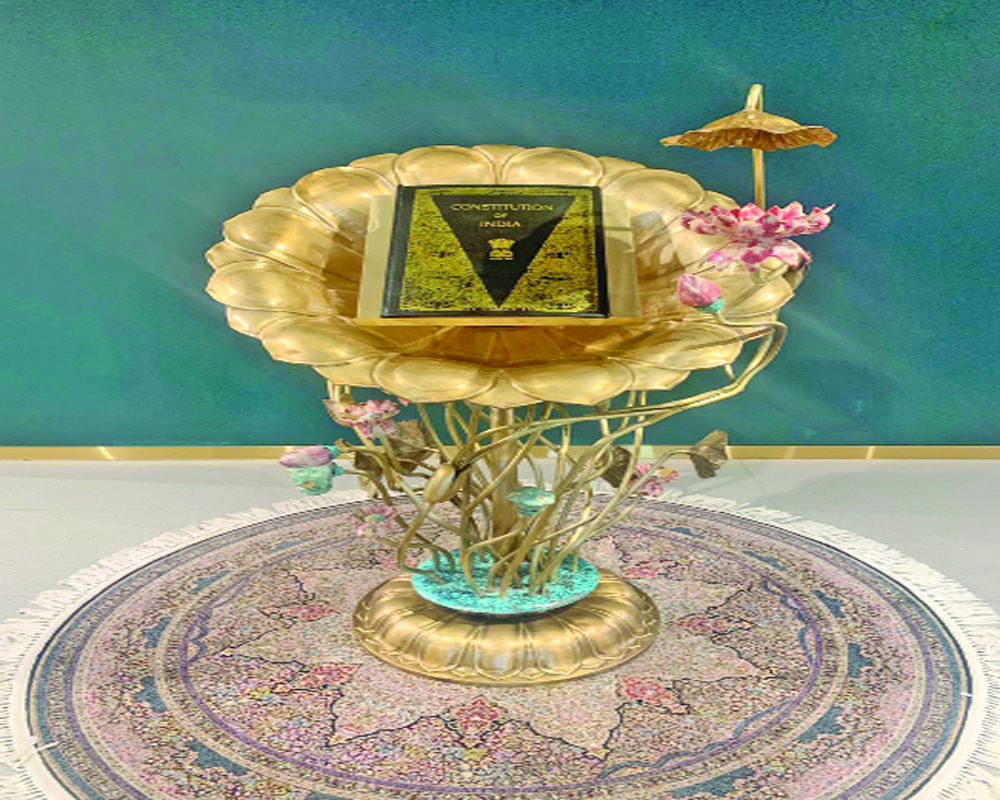O.P. Jindal Global University inaugurates India’s first Constitution Museum, writes Abhi Singhal
India’s political history is a tapestry of landmark events, judicial milestones, and moments that merit broader recognition. Yet, a significant portion of the population, including children, remains unaware of the profound influence the Constitution has on their lives. To bridge this gap, O.P. Jindal Global University (JGU) has established India’s First Constitution Museum, inaugurated on Saturday, at its Sonipat campus.
The museum aims to deepen the understanding of the Constitution through diverse sections that highlight its historical significance and the pivotal debates shaping its formation. Designed to be a hub for education and reflection, the museum employs innovative approaches to engage visitors, offering a vivid narrative of the Constitution’s 75-year journey.
Through interactive installations, cutting-edge technology, and AI-driven displays, the museum will bring history to life. Visitors will get to experience 3D installations, progressive displays, and guided tours powered by the S.A.M.V.I.D. Project, a collaboration between JGU and IIT Madras. This advanced language model enhances the visitor experience by providing in-depth insights into every exhibit, including profiles of Constituent Assembly members and their contributions.
The museum will integrate textual, audio-visual, and experiential formats, ensuring an engaging and immersive experience for all. Visitors can explore sections dedicated to each part of the Constitution, its evolution, and its enduring significance. The Constitution Gardens would add an artistic dimension, with sculptures symbolising the core principles of liberty, equality, justice, and fraternity. Drawing inspiration from illustrated manuscripts and original excerpts, these artworks also celebrate India’s geographical diversity while reflecting the unifying ethos of the Constitution.
A highlight of the museum is the art display featuring pieces from the original handcrafted document and artworks inspired by it. The museum will also house an archive of expert interviews exploring various aspects of the Constitution, making it an invaluable resource for scholars and enthusiasts alike.
As the first initiative of its kind at an educational institution, the Constitution Museum underscores JGU’s commitment to integrating education, culture, and technology. Open to the public with free entry via app-based pre-registration, it promises to be a transformative space for growing constitutional awareness and pride in India’s democratic heritage.


























